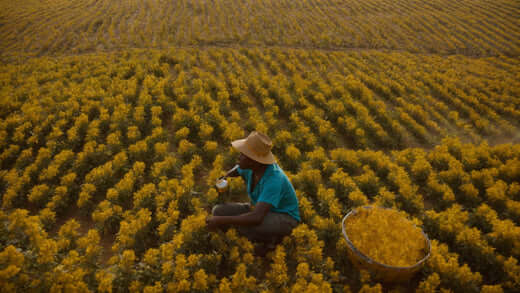
Honey and Sustainability: How We’re Making a Difference
Honey and Sustainability: A Sweet Partnership for a Better Future
Honey, a golden nectar produced by industrious bees, has been a cherished food and medicine for centuries. But beyond its sweet taste and health benefits, honey holds a vital connection to the well-being of our planet. As consumers become increasingly aware of the environmental impact of their choices, the demand for sustainable honey practices is rising. In this article, we delve into the intricate relationship between honey and sustainability, exploring how beekeepers and consumers are working together to create a brighter future for both bees and the planet.
The Vital Role of Bees in Our Ecosystem
Bees are the unsung heroes of our ecosystem. They play a crucial role in pollinating plants, which is essential for the production of fruits, vegetables, and many other crops we rely on for food. Without bees, our food supply would be significantly diminished, and the diversity of our plant life would be drastically reduced.
However, bee populations around the world are facing numerous threats, including habitat loss, pesticide use, and climate change. These factors have led to a decline in bee numbers, raising concerns about the future of pollination and the health of our ecosystems.
Sustainable Honey Production: A Buzz for the Planet
Sustainable honey production is a crucial step in protecting bees and ensuring their continued role in our environment. It involves practices that prioritize the health and well-being of bees while minimizing the impact on the surrounding ecosystem. Here are some key aspects of sustainable honey production:
- Organic Beekeeping: Organic beekeeping practices exclude the use of synthetic pesticides and fertilizers, which are harmful to bees and the environment. Organic beekeepers prioritize natural methods to manage pests and diseases, ensuring the health and vitality of their bee colonies.
- Habitat Preservation: Protecting and restoring bee habitats is essential for bee survival. Sustainable beekeepers promote the planting of native wildflowers and trees, providing bees with access to diverse and abundant food sources. They also avoid practices that destroy or degrade bee habitats, such as deforestation and intensive land use.
- Ethical Beekeeping Practices: Sustainable honey production involves ethical beekeeping practices that prioritize the welfare of bees. This includes providing ample space for hives, ensuring adequate nutrition, and avoiding excessive harvesting of honey, which can stress bee colonies.
- Responsible Packaging: Sustainable honey producers use eco-friendly packaging materials, such as recycled cardboard and glass jars, to reduce their environmental footprint. They also avoid the use of unnecessary packaging and promote reusable or recyclable options.
Choosing Sustainable Honey: Supporting a Better Future
As consumers, we have the power to support sustainable honey production by making informed choices. When purchasing honey, look for labels that indicate sustainable practices, such as “organic,” “fair trade,” or “certified sustainable.” These labels ensure that the honey was produced using environmentally friendly and ethically responsible methods.
You can also support local beekeepers who prioritize sustainable practices. Buying honey directly from local beekeepers allows you to learn more about their methods and ensure that your purchase contributes to the health of bees in your community.
The Sweet Rewards of Sustainability
By choosing sustainable honey, we contribute to a brighter future for bees and our planet. We support healthy ecosystems, protect biodiversity, and ensure the continued availability of this precious and delicious food source. Sustainable honey production is not just about bees; it's about a shared responsibility to create a world where both nature and humanity can thrive.
So next time you reach for a jar of honey, take a moment to appreciate the intricate web of life that connects bees, honey, and our planet. By making conscious choices, we can savor the sweetness of honey while contributing to a more sustainable and vibrant world.
